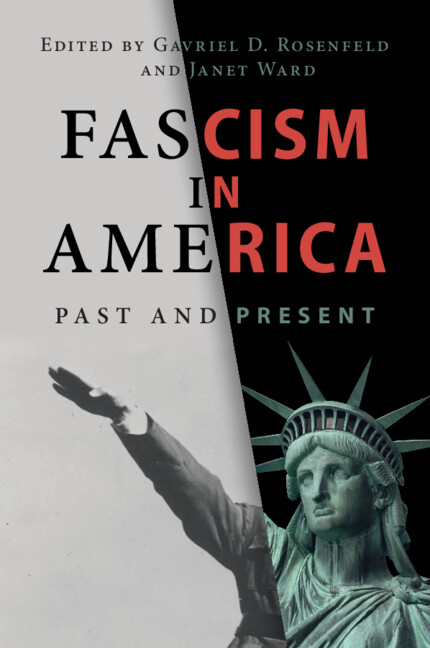
Nearly one hundred years ago, on November 9th, 1923, Germany withstood the attempt of Adolf Hitler’s Nazi party to overthrow the German government in a violent coup. Just two years ago, on January 6th, 2021, the United States survived a similar attempt by domestic right-wing extremists to prevent the newly elected American President Joe Biden from being certified as the winner of the 2020 presidential election.
Juxtaposing these two notorious events in German and American history is instructive, for it reveals not only how the German past sheds light on the American present, but how American history is itself marked by its own fascist tendencies.
Our new edited volume, Fascism in America: Past and Present, gathers scholars from the fields of German and U. S. history to weigh in on a question that has preoccupied a growing international audience since the election of Donald Trump as 45th U.S. President in 2016: is the United States in danger of succumbing to fascism? Not surprisingly, liberal commentators have disagreed profoundly on this question, with “alarmists” and “skeptics” debating each others’ positions in a wave of books, essays, op-eds, and social media posts. Right-wing responses, meanwhile, prefer to attempt to shut down such questions altogether. To date, this so-called “Fascism Debate” remains unresolved. Our book, Fascism in America: Past and Present, seeks to rectify this situation.
The volume’s twelve essays – together with our introduction, and an epilogue by Ruth Ben-Ghiat – represent the first collective scholarly effort to intervene in the debate by examining both the historical roots and recent manifestations of fascism in the United States. The volume’s contributors provide empirically grounded answers to a series of crucial questions.
One set of questions is primarily historical: Does the United States have its own distinct fascist tradition? If so, can it be viewed as having foreign or domestic origins? If domestic, which homegrown political traditions have contributed to American fascism? Is American fascism best understood as circumscribed within the “classical” fascist interwar era, or does it have its own, different, temporal trajectory? Are the post-World-War-II and now especially post–Cold War activities of extreme right-wing groups in America best understood within, or outside, the transnational fascist tradition? To what degree is the concept of fascism essential or peripheral to the American historical experience? And, ultimately, how serious is this historical threat for Americans and, indeed, for the world today?
A second set of questions is more self-reflexive: How have competing political agendas, historical memories, affective emotions, and rhetorical strategies created different discourses about fascism in this country? How have these discourses positively or adversely shaped our understanding of the history of American identity? How have the discourses on American fascism shaped our ability to “objectively” diagnose present-day political realities, and do these discourses help or hinder the political agendas of the groups that engage in them?
Fascism in America addresses these questions in four sections. The first, “Strategic Thinking about Fascism,” offers chapters by Geoff Eley, Thomas Weber, Matthew Specter and Varsha Venkatasubramanian. Part II, “Homegrown Nazis,” includes contributions by Linda Gordon, Bradley W. Hart, and Richard Steigmann-Gall. Part III addresses “White Antidemocratic Violence and Black Antifascist Activism” with chapters by Alexander Reid Ross, Anna F. Duensing, and Ousmane K. Power-Greene. The last section, Part IV, focuses on “Countering Fascism in Culture and Policy” (with essays by Gavriel D. Rosenfeld, Marla Stone, and Cynthia Miller-Idriss).
In the coming months, each of our authors will contribute to this blog page from their respective areas of expertise. Each scholar will offer a personal set of insights about how their chapters break new ground in reframing the historical narrative of this country toward a more honest and equitable reckoning with its past. We look forward to sharing their updates with you.

Latest Comments
Have your say!